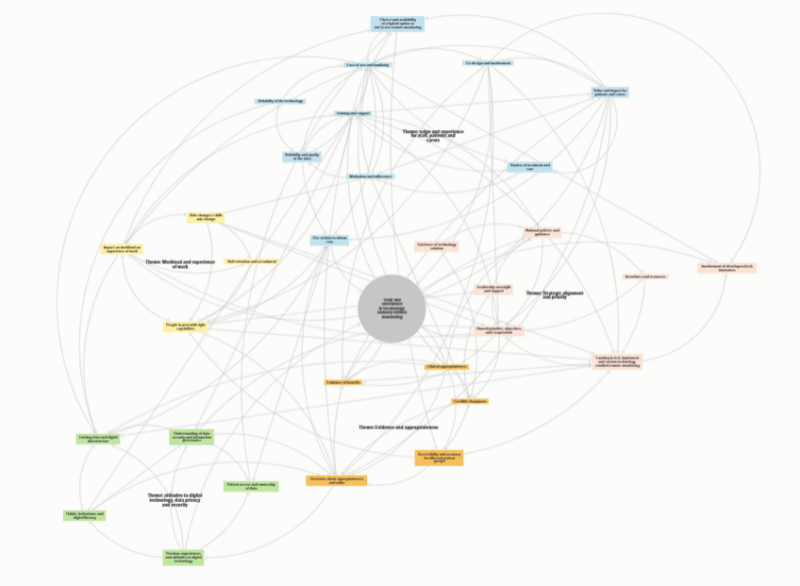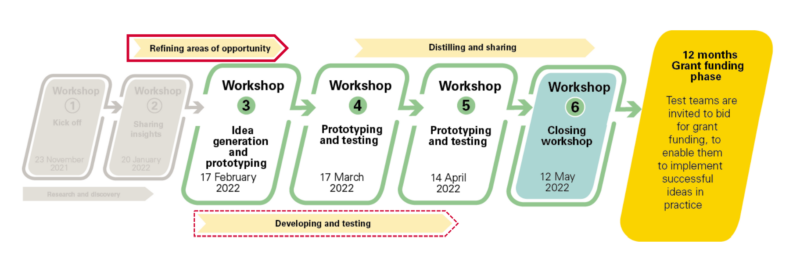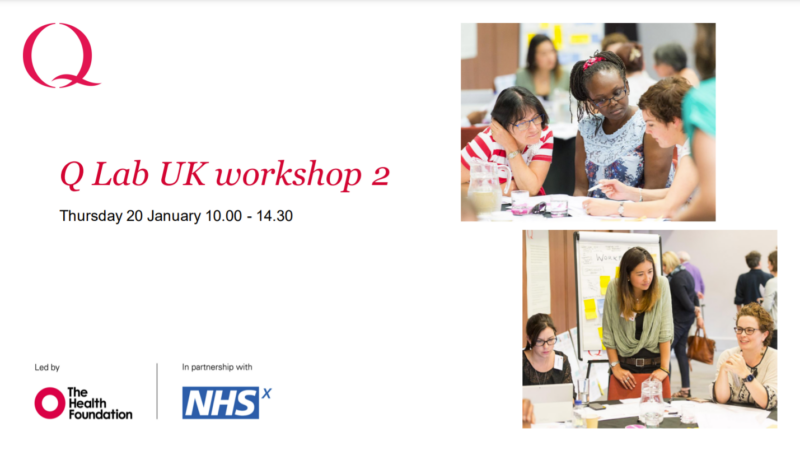After the success of the first workshop at the end of 2021, we were delighted to welcome back contributors and test teams for the second time as part of Q Lab UK’s current project.
As part of a six-month design process, this workshop continued the research and discovery phase. This phase looks at understanding and defining the problem of trust and confidence in technology-enabled remote monitoring.
This workshop provided the opportunity to hear from and support the test teams at the early stages of their work, as well as deepening our developing system view of the topic.
To those of you that attended, thank you for your energy and insights throughout the day. It was great to hear from a real mix of experiences and perspectives, harness the collective energy in the room, and continue to build a sense of community.
Read on to find out what we got up to.
Session 1: Deepening understanding of the system
We wanted to delve deeper into what we’d heard in previous conversations. In small groups, we introduced the iceberg model (a systems thinking tool) to support contributors to access a deeper understanding of the issues that affect trust and confidence in remote monitoring.
The conversations revealed some potentially messy interdependencies. By reflecting together on how this differs from existing practise, we were able to consider opportunities to intervene.
These potential opportunities included:
- Partnerships to develop technologies outside of team or organisational silos.
- Influencing what evidence is collected to put more emphasis on experience, quality of life, and equity.
- Closer alignment to strategic work on prevention, person-centred care and equity as driving the agenda for change.
- New workforce models and skillsets being used to give staff more opportunities to develop in their roles and shape the new roles needed, to improve staff retention and satisfaction.
- More proactive co-production and community engagement; recognising that staff also represent local communities.
Find out more about the model and what we heard through the session.
Explore the working version of a collaboratively developed systems map

Session 2: In conversation with test teams
In our second session, we heard from the four test teams who have received upfront funding as part of Q Lab UK to experiment and develop ideas to improve care. The teams are currently interrogating and refining their understanding of the emerging challenges in their local context, so they can develop and test ideas in practice over the next few months.
We used a Liberating Structure (Wise Crowds) to enable people to hear from the teams, and structure conversations around challenges and issues they are facing in their early work. This method encourages peer learning and is a great way for teams and contributors to connect with each other through their expertise – something we’ll be doing more of throughout the Lab.
Find out more about the teams’ challenges by downloading the slides from the session.
Session 3: Continuing your Lab journey
The Lab is now entering the ‘refining areas of opportunity’ phase of the process.

Through this, test teams will be continuing to do research and make sense of the insights they’ve gathered, to prioritise areas for change, and inform the direction they take. In the coming months they’ll be developing and testing ideas in practice to address this shared challenge.
There are three specific roles contributors can play to support the work of test teams and benefit from their learning along the way: expert, champion and/or critical friend. What these roles may look like in practice will depend on individual circumstances and may evolve over time.
This session provided the opportunity for contributors to consider how they want to be involved in the Lab going forwards, connected to the type of action they may want to take in future.
Find out more about what the different roles entail.
What next?
We’re looking forward to bringing together test teams and contributors in March when we’ll be sharing early learning on ideas that test teams have begun developing through the Lab.
In the meantime, test teams will be continuing to undertake work in their local areas. We’ll also be running some peer learning sessions for people involved in the Lab.
We always welcome feedback, comments and reflections on our emerging insights. Please get in touch with us or post comments on the online group.
